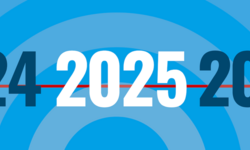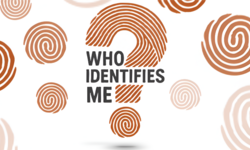
Who is Really Protected by the Proposed New Whistleblower Act?
Whistleblowers have an important corrective function in a democratic society because they expose misconduct like corruption, abuses of power and white-collar crimes. They frequently incur high personal risks. Threats directed against them or even family members are however just the tip of the iceberg – dismissals and other consequences that jeopardise their livelihoods are largely the rule in this unequal fight for truth, legality and justice. The cases of Edward Snowden, Frances Haugen, Julian Assange are current examples.
Given the role whistleblowers play in our society, a clear law is required to create straightforward paths for the brave individuals who help expose illegal behaviour in companies and public institutions. The 2019 EU directive on the protection of whistleblowers has created a minimum standard at EU level. But the EU has given member states the opportunity to go beyond this framework – any country could set a gold standard if it wanted to!
The Political Will to Protect Whistleblowers is Lacking
Austria failed to implement the directive in time and consequently risked infringement proceedings (German). On 3rd June 2022 the draft bill was finally made available for pre-parliamentary expert review, but it closely follows the directive and is anything but a milestone achievement. The proposed whistleblower protection act Hinweisgeber:innenschutzgesetz certainly does not set a gold standard, and it even gives the impression that the exposure of misconduct is not the goal of the Conservative and Green coalition government.
One of our main concerns about the whistleblower protection act is the unnecessary complexity in its scope, which is a source of great legal uncertainty. The scope of the EU directive is already very complicated, and a degree in European law would be helpful in understanding the directive. Unfortunately this was not improved in the national implementation. Beforehand and without legal knowledge it is nearly impossible to tell whether a given revelation will be protected or not. The consequences are clear: Everyone will think very carefully whether they should take the risk of making a report if they might end up unprotected, with a real risk of dismissal and possibly even threats against family members.
Given this state of affairs, the law will probably fail in its actual purpose: Providing individuals with a clear-cut, secure legal space to expose breaches of the law and corruption. The legal framework that has been created offers neither more legal certainty or transparency nor is it more logical. At least there is an option for anonymous reports, and there are provisions for the protection of whistleblowers whose identity becomes known without any action on their part. But on the other hand, an individual on their own will hardly find their way through the maze of rules in this law. Therefore companies with 50 workers or more (the law applies only to them) and public institutions are meant to provide advice themselves. The latter must for instance publish the procedure for filing reports and how this can be done anonymously. So potential whistleblowers should be instructed by potential perpetrators on how to best make their wrongdoings public? This may afford good public-relations opportunities for companies to make themselves look good in the eye of the public. But why did lawmakers miss the opportunity to simply provide clarity themselves, in order to offer a really transparent and protected path for revealing misconduct?
Make Sure Nothing Sees the Light of Day!
To make a report, individuals must in a first step turn to the (internal) reporting office of a company or public institution. Only if this office fails to act is there an option to report to an independent external office. This “independent” external office, however, is none other than the Federal Anti-Corruption Office, which is subordinate to the interior ministry. The deterring effect on whistleblowers will be enormous, given many years of frequent scandals about party-political appointments in the conservative-held interior ministry. We do not understand why the Ombudsman Board (Volksanwaltschaft), which is much more independent and not bound by ministerial instructions, cannot be the point of contact for whistleblowers.
Equally dire is the reporting channel directly to the public and the media: They can only be addressed under very restrictive conditions, which will presumably lead to the loss of valuable support in many cases. In practice, it will probably be safer for many whistleblowers to rely on editorial confidentiality than on this new law.
What is more, the fines that companies have to pay if they try to obstruct whistleblowers, retaliate against them or breach their duty of confidentiality, are a real bargain for large companies. The potential penalty is up to EUR 20,000, and up to EUR 40,000 in repeat cases. No distinction is made between large, financially strong enterprises like Telekom Austria, Strabag or OMV and all the others. For the former, such fines are arguably mere peanuts, and they will probably have little incentive to foster a culture of transparency and openness. Had the lawmakers simply used fines as a percentage of annual turnover as a guideline for companies, like the GDPR does, proportionality and deterrence could have been achieved.
But that is not all: The same potential penalty applies to whistleblowers if they knowingly make false reports. There is no disputing that measures are necessary in such an event. But fines of up to EUR 20,000 are probably not easy to manage for a private individual. Unfortunately, the law fails to differentiate, so that the balance of interests is clearly tipped in favour of financially strong companies.
A Missed Opportunity, Despite EU Requirements
It is really too bad that a courageous and far-reaching implementation of the EU directive apparently is not wanted. The goal of the responsible minister for labour and economic affairs, Martin Kocher, seems not to have been to create a usable and practical instrument for the protection of whistleblowers and to set a gold standard, but rather to bring as few instances of misconduct as possible to the light of day, in the interests of political parties and large corporations. This is a failure and will most likely prolong the present situation, where merely a small share of cases are exposed.
Enlightened, liberal democracies differ from autocratic states in many quantifiable parameters, among them the lowest possible level of corruption. Large companies will be pleased about this law, because thanks to minister Kocher, they will continue to have little to fear from internal whistleblowers. As for the population, the prospects are grim: We continue to be almost unprotected against corruption, and in the end, all of us are paying the price for this backroom deal. In theory this can still change if the green coalition partner or parliament repair the law after their summer recess. We are keeping up the fight!
You can find our comprehensive legal statement from the pre-parliamentary expert review here (German).
Since you're here
… we have a small favour to ask. You want to keep a close eye on the government? You want to stay up-to-date on surveillance, privacy, net neutrality, and all matters related to your fundamental rights on the internet? Subscribe to our newsletter and approximately once a month, we will send you a message (in German) about everything that happens around digital policy in Austria and in Europe, about our actions, legal analyses and position papers.
Together, we defend our fundamental rights in the digital age – because civil society works! Stay informed!







